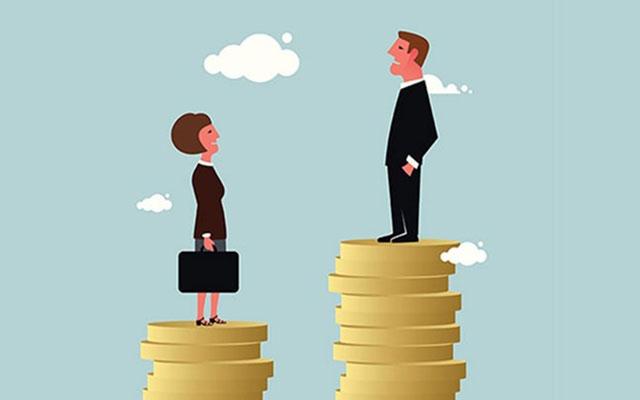You are here
Pandemic delays gender parity by a generation — WEF
By AFP - Apr 03,2021 - Last updated at Apr 03,2021

GENEVA — The pandemic has rolled back years of progress towards equality between men and women, according to a report released on Wednesday showing the crisis had added decades to the trajectory towards closing the gender gap.
A range of studies have shown that the COVID-19 pandemic has had a disproportionate impact on women, who have lost jobs at a higher rate than men, and had to take on much more of the extra childcare burden when schools closed.
The effects will be felt in the long-term, according to the World Economic Forum (WEF), which in its annual Global Gender Gap Report found that the goalposts for gender parity appeared to be moving further away.
The organisation, which usually gathers the global elite in the plush Swiss ski resort of Davos each year, had found in its previous report, published in December 2019 right before the pandemic hit, that gender parity across a range of areas would be reached within 99.5 years.
But this year’s report shows the world is not on track to close the gender gap for another 135.6 years.
“Another generation of women will have to wait for gender parity,” the WEF said in a statement.
The Geneva-based organisation’s annual report tracks disparities between the sexes in 156 countries across four areas: Education, health, economic opportunity and political empowerment.
Workplace equality
in 267 years
On the plus side, women appear to be gradually closing the gender gap in areas such as health and education.
But inequality in the workplace — which has long appeared to be the stickiest area to fix — is still not expected to be erased for another 267.6 years.
And the pandemic has not helped.
The WEF pointed to a study by the UN’s International Labour Organisation showing that women were more likely to lose their jobs in the crisis, in part because they are disproportionately represented in sectors directly disrupted by lockdowns.
Other surveys have shown that women were carrying a greater share of the burden of increased housework and childcare during lockdowns, contributing to higher stress and lower productivity levels.
Women were also being hired back at a slower rate than men as workplaces opened up again, according to LinkedIn data referenced in the report.
“The pandemic has fundamentally impacted gender equality in both the workplace and the home, rolling back years of progress,” WEF Managing Director Saadia Zahidi said in the statement.
“If we want a dynamic future economy, it is vital for women to be represented in the jobs of tomorrow,” she said, stressing that “this is the moment to embed gender parity by design into the recovery”.
Political gender
gap growing
It was in the political sphere that the march towards gender parity did the biggest about-face, with several large-population countries seeing the political gender gap widen, the WEF study found.
Women still hold just over a quarter of parliamentary seats worldwide, and only 22.6 per cent of ministerial positions.
On its current trajectory, the political gender gap is not expected to close completely for another 145.5 years, the report found.
That marks a 50 per cent hike from the estimated 95 years in the 2020 report, WEF pointed out.
Progress across the categories varies greatly in different countries and regions.
The report pointed out that while Western European countries could close their overall gender gap in 52.1 years, countries in the Middle East and North Africa will take nearly 142.4 years to do so.
Overall, the Nordic countries once again dominated the top of the table: The gap between men and women was narrowest in Iceland, for the 12th year running, followed by Finland and Norway.
New Zealand took fourth place, ahead of Sweden.
Related Articles
LONDON — Developed countries could add trillions of dollars to their economies by increasing women’s participation in the workforce and ensu
LONDON — Women must wait 202 years before they can earn the same as men and have equal job opportunities, according to a global report relea
AMMAN — The Kingdom climbed seven points on the gender gap index, according to the World Economic Forum’s report “Closing the Gender Gap Acc



















